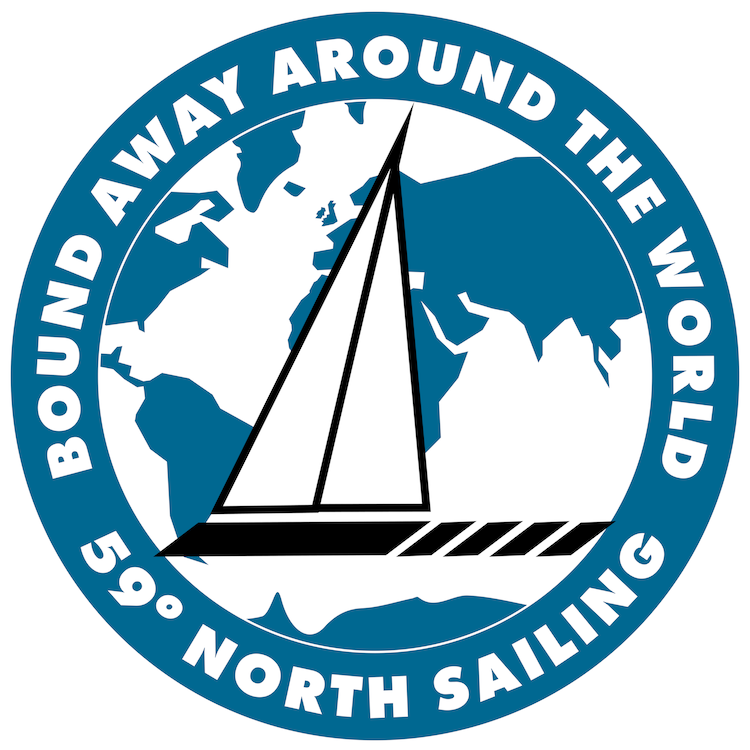Matt Rutherford's photo of Cape Horn during his Around the America's voyage.
This is an accidental post this morning after reading a comment on the last post about Stanley Paris. I started writing a reply to it, and decided the comment and the reply would make a good post on their own, so here goes. We get into the philosophical nature of sailing and cruising and going after records, so some of this doesn't apply to Dr. Paris at all. And know from the start that I admire what he set out to do, and I admire his difficult decision to quit. Only he knows how that feels, the rest of us are just yapping. So first, the comment, from someone called Jesse:
"I believe this was likely a case of too much boat, too many systems and things to go wrong for a singlehanding man of a certain age especially, making it fairly unlikely to succeed from the start. It’s all well and good to go after records in sailing. Still, it seems important to not lose sight of safety in the march to more and more speed, nor the importance of keeping it simple.
How much better might it have been to have simply built a boat strong enough to sail around the world comfortably, and be able to stop and enjoy the people and places along the way. I don’t understand at all, this drive to race upon the waters of the earth faster and faster without ever once stopping to experience all the places that a curcumnavigation entails you passing. Sailing is joyful. Endurance records are exhausting attempts at illusory goals, almost always to be broken by someone else. Enjoy Capetown Dr. Paris. The NY Times just made it their go to destination of 2014. And perhaps consider the premature end to your quixotic quest, to have been not a failure at all, instead rather a blessing in disguise."
And now for my thoughts...
Great comment by Jesse, but there is another, more spiritual side to it. Endurance goals are indeed exhausting and illusory, but therein lies the point. They are transformational, something you can't understand until you've pushed your own limits of body and mind and see what happens. After running a marathon or competing in a long-distance triathlon, you're changed, in a subtle way, and you yearn for more. If you do enough of those challenges, you end up needing something like a nonstop circumnavigation to satiate that desire. And it IS pointless, but it's still there. It's like a drug.
I just watched the GREAT documentary 180º South two nights ago, and Yvon Chouinard, founder of Patagonia, perfectly describes climbing mountains, and the similarly quixotic quest of summiting:
"You get to the top of a wall, there’s nothing up there. Lionel Terray, the great French climber called it ‘The conquistadors of the useless.’ Yeah, the end result is absolutely useless, but every time I travel, I learn something new and hopefully I get to be a better person.”
So for that reason alone, I applaud Dr. Paris for making the attempt in the first place. Perhaps all he wanted to see out there was the changes he himself would undergo along the way.
Now, Jesse makes a good point about simplicity and how Paris went about it was decidedly NOT simple. Another Chouinard quote about Everest (which you could compare to Paris' trip):
"Climbing Everest is the ultimate and the opposite of that. Because you get these high powered plastic surgeons and CEO's, they pay $80,000 and have sherpas put the ladders in place and 8000 feet of fixed ropes and you get to the camp and you don't even have to lay out your sleeping bag. It's already laid out with a chocolate mint on the top. The whole purpose of planning something like Everest is to effect some sort of spiritual and physical gain and if you compromise the process, you're an asshole when you start out and you're an asshole when you get back."
I don't think Paris is an asshole, of course (maybe he is, I never met the man!), but it's a good look at the difference between a trip like Matt's, and a trip like Paris'. Matt set out on a simple, spiritual journey and 'accidentally' set a record. Paris' goal all along was the records themselves. Perhaps that simple difference in attitude is what let the former succeed while it undid the latter..



